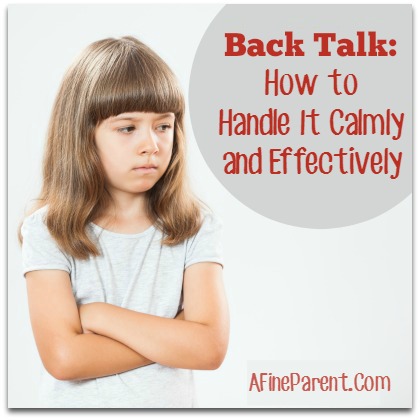 Does this sound familiar?
Does this sound familiar?
You tell your kids you’re all going to the store, and one immediately responds with a whiny “Whhhhhyyyy?”
You calmly explain that you need some groceries, and a response comes back immediately: “I don’t waaaaant to go! Sophie’s mom never makes her go grocery shopping!”
Managing to stay calm, you explain that different families have different rules and, in your family, you don’t do things the way Sophie’s family does. And then, you ask your kids to put on their shoes.
(Yaay for a calm positive parenting moments, right?)
But instead of being appeased and hopping up to put on her shoes your child responds back with “And Sophie gets twice as much pocket money as I do!”
What?
And in a matter of seconds, the conversation turns from pocket money to the ‘fact’ that everyone else at school has a mobile phone.
And you find yourself having a full blown argument over the necessity of a mobile phone for an eight-year-old!
How did that happen?
All I did was asked my kids to get ready to go to the store! And here I was embroiled in a completely unrelated power struggle with my child.
If you have a strong-willed child with a mind of their own, you know what I’m talking about…
They have an opinion about everything and a rebuttal for every request.
Talking back is a way of life for them – as natural, and perhaps as involuntary, as sneezing when pepper gets in your nose.
They don’t do it to be disrespectful. They do it because… that’s just who they are!
On the one hand, you don’t want to squash their spirit. After all, there are studies to show that kids who talk back are likely to be more successful in life.
On the other hand, you are only human. There is only so much back talk you can take. You can’t afford for every request to go to the grocery store to turn into a debate over something entirely unrelated.
I’ve been there and I know how you feel. And over the years, I’ve found a way to deal with back talk without being drawn into power struggles, and without squashing my child and her wonderful spirit.
Here are the 5 tricks I use –
#1 Channel Eeyore
 In order for back talk to work, you need to be drawn into a conversation. You need to engage and start feeling emotional about a topic.
In order for back talk to work, you need to be drawn into a conversation. You need to engage and start feeling emotional about a topic.
Basically, you need to bite the bait that results in an argument.
But what if that didn’t happen? What if you could consider this whole thing a little like a game of strategy – a bit like tic tac toe?
So, your child makes a move, and then you make a move that prevents a disagreement from occurring.
The first thing is to prevent yourself getting emotional, and that’s where I like to channel Eeyore.
You know Eeyore from Winnie the Pooh? He’s the rather glum donkey. Grey in color and grey in personality.
Channeling him does two things. It slows you down to his pace and stops you wanting to ‘win’ the game. It’s also calming for you and your child.
So when your child says something like, “I hate grocery shopping” or “Sophie’s parents don’t make her go shopping” you can respond with a “Hmmmm…” in a flat, monotonic, slightly dispirited voice.
A voice that sounds too tired to continue the conversation. A voice that no one wants to keep talking back to. A voice that counters your child’s highly spirited retorts.
And stops back talk dead in its tracks.
#2 Have Ready One-Liners
 Kids seem to have a hidden talent of hooking their parents into arguments. It happens before we even realize what’s going on.
Kids seem to have a hidden talent of hooking their parents into arguments. It happens before we even realize what’s going on.
The secret to preventing this is to have one or two one-liners ready to respond, so you’re not drawn into an unhealthy, unhelpful conversation.
I ‘steal’ mine from Love and Logic, who provide tools for raising confident, resilient children. I find their system too harsh to fully implement, so I use a slightly modified approach.
But their one-liners are fabulous.
Imagine you’ve just heard, “Sophie’s mom never makes her go grocery shopping!” and you roll out one of the following lines (in your best Eeyore tone):
“Probably so.”
“I know.”
“Nice try.” (keeping it light)
“Hmmmm”
I personally find “Hmmm” a great one because it’s like a mini-meditation for me that still gives a response 🙂
Now the first time I used this, it did inflame the situation a little. My daughter got quite frustrated that I wouldn’t be drawn into the conversation.
She said things like, “What are you doing?”, and “That’s just weird!” and eventually “Why won’t you talk to me?”
But I stayed calm. At some point though she seemed to have caught on and realized there was no point trying to continue the conversation and moved on.
#3 Be a Broken Record
 Broken record is an assertiveness technique that allows you to get your point across without entering into an argument.
Broken record is an assertiveness technique that allows you to get your point across without entering into an argument.
You can use it with your kids, and it’s also an incredibly powerful conflict resolution tool.
It lets the other person know they’ve been heard and understood. It allows you to be empathetic, without giving in.
So use it to show you understand and then restate your position, calmly. Here are a few examples:
“I know you don’t want to go to the store, but we need to buy some groceries.”
“I can hear you’re frustrated, but we need to go to the store.”
“I know you’d rather stay here and play, but it’s time for grocery shopping.”
As long as you’re sincere in your empathy, this technique is effective. The person knows you’ve heard their message, but you cannot be moved to change the outcome.
#4 State What You Want
 Sometimes our kid’s back talk is… well, rude. Maybe they’re tired or they’re irritated by their sibling.
Sometimes our kid’s back talk is… well, rude. Maybe they’re tired or they’re irritated by their sibling.
Whatever the reasons, they can snap or yell at us. Maybe it’s, “No! I don’t want to!” or maybe they’ll try, “You can’t make me!”. Or worse.
If this happens, you can calmly state what you want, or what you will do.
Try saying things like, “I’d like you to calm down and speak to me instead of yelling please.”
Or “I don’t like being disrespected and that voice makes me feel like you are disrespecting me. Will you please try to speak nicely?”
You can show empathy if you feel up to it, and say something like, “I can see you’re angry. I understand. But like everyone around us, I deserve to be treated respectfully, even when you are angry. Do you need a minute to calm down before we continue this conversation?”
When you’re both calm, you can tell your child exactly what words or tone of voice you found unacceptable.
#5 Walk Away
 But what if your child doesn’t want to calm down? What if she isn’t ready to do so yet, and continues to escalate the situation?
But what if your child doesn’t want to calm down? What if she isn’t ready to do so yet, and continues to escalate the situation?
The key here is to realize that this is normal. It will happen sometimes.
The thing is to monitor yourself. If you feel your temperature rising, take steps to manage your anger so you don’t end up yelling, making the situation even worse.
Your kids are likely to model your angry behavior when they’re angry. I remember wondering why my three-year-old stamped her foot for emphasis and stood with her hands on her hips, glaring at me.
Until I found myself doing that to her. Ooops!
Being angry is completely fine. It’s normal, and not something we should try to conceal or feel guilty about.
We just need to learn how to regulate our response to the anger. So, if the situation has turned into an intense standoff, consider walking away.
You can tell your kids what’s going on by saying something like, “This situation is escalating. I’m starting to get very upset. I’ll get back to you when I’m calmer.”
Now you are doing exactly what you asked of your child a few minutes back. Kids notice these things. And they learn. At first it may seem a little weird, but once you both get used to it, your child might surprise you by asking to be excused for a few minutes instead of lashing back at you.
Going back to where we started, if you need to go to the grocery story, no doubt your first preference would be for the kids to drop what they are doing and happily skip out the door behind you. That is the best-case scenario.
Life doesn’t always dole out best-case scenarios though.
What then? Do you prefer a full-blown argument, or a child who takes time but eventually collects themselves and then skips out the door?
Let’s say it’s the absolute worst-case scenario… would you rather have a major fight and drama, or a child who sulks in an attempt to deal with you interrupting them, but heads out the door, nevertheless?
In Conclusion
With some kids, talking back is just a part of their personality.
You can listen to conventional parenting advice, treat it as a sign of disrespect and try to squash it, possibly also squashing your child’s spirit along the way.
Or you can remind yourself that it a sign that your kids are likely to be successful in life, and learn to handle it compassionately.
Yes, back talk can be disruptive and upsetting for both you and your family.
But rather than treating it as an act of defiance to be steamrolled, challenge yourself to think of it as a game of strategy.
Simply deflect their attempts to confuse or complicate your requests.
You don’t have to be drawn into a convoluted conversation about how good other kids have it.
You don’t have to put up with rude behavior.
You don’t have to lose your cool and feel guilty about how you responded.
Instead, channel Eeyore and have your responses ready. Be a broken record, or tell your kids what you want.
Stick to your guns with cool composure and pretty soon you’ll find back talk a thing of the past!
The 2-Minute Action Plan for Fine Parents
Take a moment to consider your child’s behavior.
- What happened the last time your kids talked back? How did you respond?
- Was there a turning point – a crucial event or moment where things took a turn for the worse? How could you manage this better another time?
- What buttons does your child push in you – how do you feel when faced with back talk?
- How can you change the patterns you may have developed?
- What strategies can you put in place to prevent back talk without squashing your child’s wonderful spirit?
The Ongoing Action Plan for Fine Parents
- Brainstorm what you can say to prevent back talk the next time it occurs. Make a note you can put on your fridge.
- Review some of the Love and Logic one liners and choose one or two that resonate with you. You don’t need a whole swag of these in your toolkit, one or two are enough. Start visualizing yourself using them at the next opportunity.
- Imagine yourself channeling Eeyore the next time your child talks back to you, so you can stay calm and empathetic, while at the same time conveying bored disinterest in being drawn into an argument.
- Recall the last time your child talked back to you. Using the broken record technique, write down a few things you could have said during the conversation.
- If it seems impossible to deal with your child’s back talk ask yourself this: “If it were possible, how would it be achieved?” Make some notes.


In number three above I would replace “but” with something like “the problem is…” because the word but negates everything before it. So your first part of your statement would not be affective.
I believe the broken record technique only works without the word, “but.” Using the word, “but,” contradicts the empathy you just tried to establish. “I know you don’t want to go to the store, but we need groceries,” comes off like, “I do not care about your feelings because of our need for groceries,” and, “our need for groceries are more important than your feelings.” There is a simple fix for this: just omit the word, “but.”
I know this is a very difficult habit to break! What I try to do is say, “I know you don’t want to go to the store. I don’t either!” Or, “I can see you’re frustrated about needing to go to the store. It would be so much more fun to stay here and play!” Or, “I wish we could stay here all day and the groceries would just appear in our house! Wouldn’t that be so cool?!” Or even, “I know it’s hard to stop having fun. What would you like to do when we get back?”
All of these responses let your child’s feelings be as they are. No negating. 100% empathy.
That’s a very good point, Andrea. And I love the alternate suggestions you have given. Thank you so much!
Dubbing any response that isn’t a straightforward, unquestioning “yes” ‘Backtalk’ is an incredibly lazy and ignorant way of having a verbal relationship with your child, instead try actually listening to their response as opposed to cutting them off mid sentence with the same old excuse of “Backtalk!”.
I just came across this post as I surfed around. I loved the 2 minute action plan. As a Martial Arts instructor who works with a LOT of 5-10 year old kids I have found an effective way to deal with back chat is to discreetly pull the offending child aside, kneel down to their level and say in a gentle and unemotional way something along the lines of; “I felt really sad when you didn’t listen to me (or another instructor) because I was trying to make sure that you and the other kids were going to do a really fun drill and with you not listening properly it wasn’t so good. Do you know what I mean?”
I usually get a reluctant nod here. Then I say how about for the rest of the class you listen, do exactly what I say and try your best. I’m sure you’ll see how better the class will be. What do you say?
I usually get a subdued “yes sir” at this point. To wrap it up I then say “give me a high 5 and let’s get going… oh, if I see you going really well, I have a pretty cool sticker that you might like”. Then after 5 minutes I try to catch them doing something ‘right’ so I can say “That’s much better. Well done!”
I find that this kind of calm, logical and personal interaction to be very effective. Kid’s are often a lot smarter than we give them credit. Just a thought.
Wow, Gary. That is a fantastic approach! If every teacher and instructor was this invested in the child, I can’t imagine how much easier things will be for us parents! Not only will this work with what we try to do at home, a child who doesn’t have to deal with the baggage of shame and feeling belittled at school/camp/other activities, is a much easier kid to hang around with. Thank you — both for what you do and sharing it with us.
My dad believed firmly that nobody wants to be thought of as rude, and had no problem calling children out on it. My children are mortified if I tell them they are being rude, so we have never suffered back talk issues. That’s not to say when they were toddlers and pre-schoolers and got over-tired and hungry they didn’t spiral out of control sometimes, but that’s not the same because they were beyond reason in those circumstances. My kids are confused on occasions when they’ve observed other kids whining to their parents about why they’re doing it. They can see it looks ugly, and they choose differently, and I’m glad.
Personally, I think for too many parents it’s just something they believe is part of being a kid and they don’t make an effort to correct it. Different parents have different priorities. Teaching my children the value of being respectful happens to be high on my list.
Hi Korinthia,
I’m glad you have a great relationship with your kids and teach them the value of being respectful – that’s certainly important (and a trait many adults don’t exhibit)!
Having said that, I think it’s important to be very careful about labeling kids and their behaviour. I think you’ve put the right spin on things to say that they are ‘being rude’ rather than that they themselves are rude. We’re all capable of behaving rudely, but if we start to think of ourselves as a rude person – that’s a whole different thing. And it comes with a whole bunch of personal and behavioural problems.
And you’re right that many parents ignore poor behaviour when it could be addressed. Everyone needs to learn to behave respectfully to other people, and quite young kids can get the hang of it.
Thanks for commenting. 🙂
I agree labels on children can be damaging, but labeling behavior is useful. What I tell my kids specifically is how what they are doing is interpreted by others, and if that’s not what they intended to express they should change it. If they are saying something in a way that is supposed to upset people, then fine. They can see what the consequences are. If they think they are just expressing their own needs and don’t realize it looks disrespectful, they should know. I have one child at the moment who projects hostility when she’s unhappy with herself, and I have to explain that she makes other people believe she’s mad at them. She was surprised to know that. I told her she doesn’t have to fake being happy, but she should maybe find ways to excuse herself from a situation rather than subject someone else to her mood.
respectfully I say, I hold it a high priority to teach my kids the same, however having a strong-will child has taught me different, has made me question myself, and brought me to literally want to run. At times, I feel as if I’m the only one with a child that is rude, disrespectful and swears she’s in control. Where did my sweet child go?
Cate,
I learned the “broken record” technique when I was a middle school teacher. I’ve found it to be really effective!
Another strategy I’ve found particularly helpful, especially with preschoolers and toddlers (where most of my experience is) is to figure out how to incorporate their desires into yours. So with your example of getting them to the grocery store, it could be figuring out what they are accomplishing by stalling/pushing back. Maybe they need more play (can you play a game as you get into the car, or make a scavenger hunt out of the shopping?) or maybe they need to bring what they are doing into the car. Maybe the grocery store is BORING (you can empathize and then problem solve together on how to make it more interesting for them). Or maybe they just need 5 more minutes to wrap up what they were doing.
Hi Amy,
All great techniques for toddler-wrangling (and child-wrangling). Thanks for sharing them, and I’m glad you liked the article. 🙂